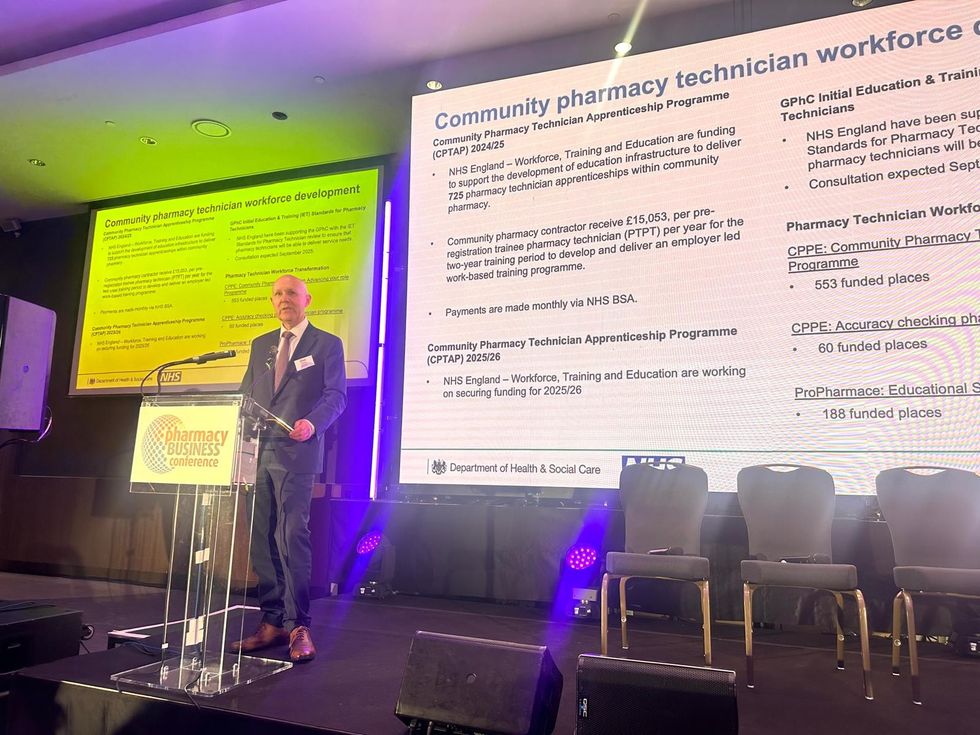BY JEREMY MEADER
Several years of funding cuts have forced the community pharmacy sector to reduce staffing levels, this situation has been compounded by the exodus of pharmacists to GP surgeries.
The 2019 CPCF provided flat funding, in reality allowing for inflation this represents a further reduction.
Consequently many community pharmacies in England are already under severe financial pressure, with many describing this as the toughest time they have ever known.
The impact of COVID-19 on many community pharmacists and their teams will be deeply felt, especially as many GP practices are closing their receptions and potentially limiting appointments for patients or switching them to on-line consultations.
Community pharmacies will come under increased pressure and increased risk.
The Government detailed a clear action plan to community pharmacy calling on them to follow a clear and descriptive set of SOPs in the event of an escalation of cases and the mitigation of risk should a patient present with COVID-19 like symptoms.
Pharmacies in England and Wales are being issued with COVID-19 kits to ensure pharmacists and their teams are protected on the ‘front line’ as the Pharmacy team are asked to provide advice and support to an increasingly worried population.
This very clearly demonstrates the value the Government places on community pharmacy and the role we play in the wider healthcare infrastructure; they are turning to us to ensure continuity in care and that patients get the medicines they need.
Community Pharmacy will without question do all it can to continue providing essential healthcare at the heart of local communities, at a time of National need, however there is a very real risk some will not have the financial resources to do so.
We are genuinely facing a funding crisis. The additional requirements are not insignificant; manage redeployment of staff dealing with potentially infected patients, equip with a patient support pack, review incident management and business continuity plans, fund the necessary requirements of decontamination, prepare and publish patient facing communication – the task list continues.
If a Pharmacy has to decontaminate, it’s strongly advised to temporarily close during that process. If a key member of staff becomes infected, some Pharmacies may even have to close, causing further suffering.
We must not underestimate the impact of this. The additional costs of business could be significant and ultimately could be the death knell for some community pharmacies already on their knees as a result of continued and consistent funding pressures.
Enough is enough, we call upon the Government to recognise the value and commitment of community pharmacy and fund it accordingly, in the short term from the additional £12bn pledged to the NHS to support Coronavirus, but also long into the future to ensure an adequately funded, economically sustainable pharmacy network.
Disclaimer: The views expressed in this article are those of Jeremy Meader, managing director of Numark














 Health Secretary Wes Streeting addresses Pharmacy Conference via video
Health Secretary Wes Streeting addresses Pharmacy Conference via video  David Webb, chief pharmaceutical officer of NHS England
David Webb, chief pharmaceutical officer of NHS England Shailesh Solanki, executive editor of Pharmacy Business
Shailesh Solanki, executive editor of Pharmacy Business L-R: Yasmin Karsan, Pritee Panchmatia and Fin McCaul
L-R: Yasmin Karsan, Pritee Panchmatia and Fin McCaul  L-R: Baba Akomolafe, Rachna Chhatralia, Patricia Tigenoah-Ojo and Raj Matharu
L-R: Baba Akomolafe, Rachna Chhatralia, Patricia Tigenoah-Ojo and Raj Matharu L- R: Nicola Stockmann, Robert Townsend, Atul Patel and Amerjit Singh
L- R: Nicola Stockmann, Robert Townsend, Atul Patel and Amerjit Singh Wole Ososami, lead pharmacist at Westbury Chemist
Wole Ososami, lead pharmacist at Westbury Chemist

